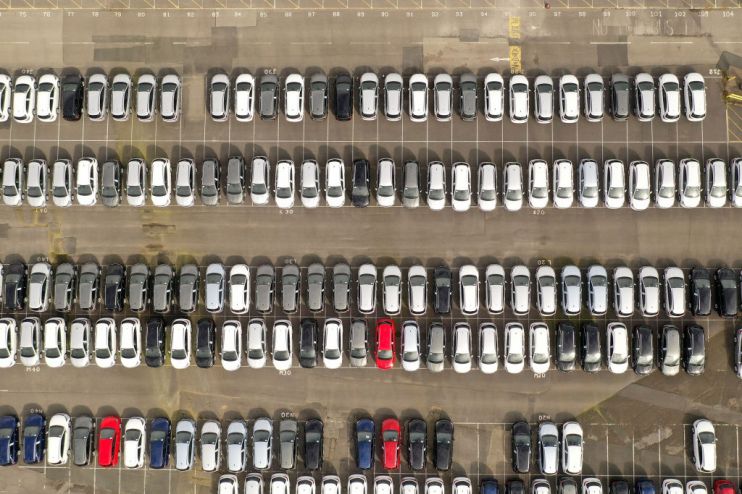Our auto industry must let go of nostalgia even as it revives DeLorean

Last week, we were bombarded with fond memories and childhood nostalgia as the famed DeLorean car make was revived. A new model, trading on those most powerful of marketing tools, will be released. Former Tesla executive Joost de Vries has bought the rights to the famous name and set up the gullwing-doored Alpha5 as a challenge to Porsche and Mercedes.
Clearly, we are meant to wax lyrical on the cinematic success of the car in Back to the Future and its two sequels, and remember less clearly the trial – and acquittal – of the car’s original founder John DeLorean for drug trafficking and the subsequent ignominious collapse of his company. The new car, however, is an exercise in outsourcing: de Vries told reporters that the car was being built in Italy, and that DeLorean has “some partners” in the UK working on its powertrain.
So the new DeLorean will still have some claim to Britishness, even if it is not, as its predecessors was, built just outside of Belfast. But it marks a turning point in the auto industry in the UK, which has faced a reckoning for some time. Who could forget the fears firmly implanted in us from the Remain camp that Brexit would spell the end of our four-wheeled success?
Making cars in the UK is big business. £82bn in turnover, in fact, sees 1.5 million passenger vehicles built, mainly by the large multinational manufacturers Nissan, Toyota and Vauxhall. So that is a healthy industry, secured during Brexit by Nissan’s pledge to maintain and expand their Sunderland plant, even if drawing down elsewhere. On the debit side, Honda closed its factory at Swindon last year.
The UK also supports a thriving low-volume and premium sector, with sporting brands like Caterham and Lotus alongside luxury marques like Rolls-Royce, Bentley and Aston Martin. The latter are foreign-owned but produced in the UK because of the country’s long motoring heritage and the reputation of its craftsmanship. But we are losing ground: both Rolls-Royce and Bentley, formerly reliant on domestic coachbuilders, now import ready-painted body shells from Germany for assembly only in the UK.
With electric vehicles now being accepted as the transport of the future, Britain has another automotive strength: batteries. Nissan has invested more than £400m in a plant to manufacture lithium-ion batteries to power its range of EVs. Meanwhile, further north still, Britishvolt has secured an offer of government support for a gigafactory in Blyth, producing batteries for 300,000 cars each year. And in the West Midlands, the government has given permission for a gigafactory at Coventry Airport, though it has yet to attract the support of a car manufacturer.
The battery market is an obvious one to tap. The many manufacturers based in the UK will need more and more batteries: demand will inexorably rise, not fall, saving the invention of a completely new technology. The chairman of Britishvolt, Peter Rolton, pointed out that “Chinese or other Asian imports are not going to be an option. There will be very, very significant shortfalls of batteries.” He neatly defines the problem in a way that he can answer precisely.
The UK offers the automotive sector a ready, highly skilled workforce, expertise across the board from basic body assembly to research and development, and a new area of excellence peeping out in the form of battery production.
Making, selling and running cars supports around a million jobs in the UK. While British-owned brands may be thin on the ground, we are still producing large numbers of classic marques like Rolls-Royce, Bentley, Aston Martin, Lagonda, Lotus and Caterham. The decision, however heavily courted, by Nissan to commit to the UK was hugely important in overcoming the potential hurdles of Brexit. We must not look to our laurels, however; the automotive industry is too precious to be allowed to decline again, and we must promote and export UK motor technology as passionately as we champion our other tech successes.
The car industry always likes a bit of nostalgia, as the new DeLorean demonstrates. And the sector is rich in heritage in this country. But the past should only inspire, not comfort, us. If we want to stay in the motor trade, we need to build more and better cars, engines and other parts. Seeing gigafactories take shape is as close to a modern restoration of our manufacturing base as one could want.